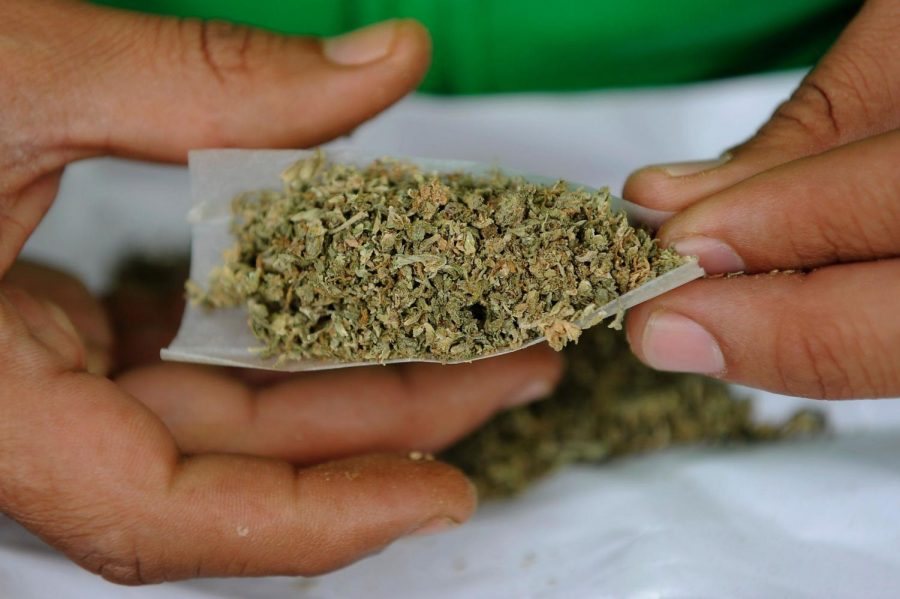Cannabis legalization in the UK could earn Treasury £3.5bn
The UK cannabis industry could succeed by following in the footsteps of the United States
The UK Treasury could earn £3.5 billion in annual tax revenue if it legalizes cannabis, according to new research.
Health Poverty Action has reported how the UK cannabis industry could generate an impressive £2.26 billion in license fees and taxes if it established a system just like those introduced in weed-friendly U.S. states, like Colorado and Washington.
In addition to this, the country’s annual tax revenue could hit £1.4 billion if it manages to generate as much as the Netherlands currently does, which is entirely possible.
UK cannabis industry could be as taxable as alcohol or tobacco
 There’s a good chance the UK cannabis industry could quickly become as taxable as the alcohol or tobacco markets. In this case, income would soar to somewhere between £1.9 billion and £3.5 billion. This is based on a market worth £7 billion.
There’s a good chance the UK cannabis industry could quickly become as taxable as the alcohol or tobacco markets. In this case, income would soar to somewhere between £1.9 billion and £3.5 billion. This is based on a market worth £7 billion.
Although the market’s response to cannabis regulation remains unknown (not to mention what type of regulatory model would be introduced), the Health Poverty Action report stated how the UK recreational cannabis industry could earn the nation £1 billion annually.
This amount is roughly the same amount that midwives in England earn as a basic salary.
“We would not know precisely until we tried it, but the emerging evidence from the US is that reasonable tax contributions and mitigating other health risks is possible,” the report said.
Legalizing cannabis in the UK could save police services money
An analysis was drawn from regulated markets to determine how much the UK Treasury could save if it taxes legal cannabis sales.
Cannabis legalization in the UK would save England and Wales’ police, prison, court, and probation services an estimated £291 million. This will enable the police services to funnel money into tackling violent crimes.
By utilizing data from places that have placed taxes on legal cannabis, such as the Netherlands and the US states of Colorado and Washington, Health Poverty Action has since reassessed these estimates.
The UK cannabis industry could succeed by following in the footsteps of the US
 If the international development organization’s calculations are correct, the UK cannabis market could earn up to £2.26 billion.
If the international development organization’s calculations are correct, the UK cannabis market could earn up to £2.26 billion.
This is feasible if a system is used to generate tax and license fees, like the systems used in the U.S.
A figure of around £1.4 billion is more likely if the UK cannabis tax income is equivalent to that in the Netherlands.
Nevertheless, the UK’s illegal cannabis market is currently nowhere close to being dismantled and therefore there is no telling just how straightforward the shift to a regulated market is going to be, especially if cannabis is to be taxed just as much as the alcohol and tobacco industries.
“It is a fair assumption that a legal recreational cannabis market is likely to bring in at least £1 billion annually, and it could be much more,” reports Health Poverty Action.
It’s not just the tax taken directly from cannabis sales in the UK that the charity speaks of but also, income tax gains from active taxpayers who have committed cannabis-related crimes and/or been imprisoned for an offense.
Taxing UK cannabis could earn the nation big money
The Institute for Social and Economic Research (ISER) carried out a study back in 2013 predicting that UK cannabis tax could turn over an annual amount of £397-£871 million. Of course, this amount is dependent on the level of demand and taxation.
The upper estimate was predicted based on taxes imposed at 79 percent of the cannabis price and demand response, meaning that the majority of cannabis consumed would have been taxed.
For the lower estimate, imposed taxes levied at 51 percent and the response was that of a widely untaxed market.
The ISER study spotlighted the benefits of income tax on UK cannabis from fewer people being in prison and less “scarring.” It was estimated at £10 million and £23 million respectively.
“Prohibition has failed. From our perspective, it’s about regulating the market to improve public health outcomes and create a safer environment. But we can see the potential benefits from a taxation perspective if we were to regulate it,” said the Health Poverty Action advocacy officer, Natasha Horsfield.
Moreover, ISER anticipates that the growing costs or savings for mental health services could range from £16 million saved to an additional £41 million spent. However, this all depends on the impact that cannabis legalization in the UK has on consumer behavior.








